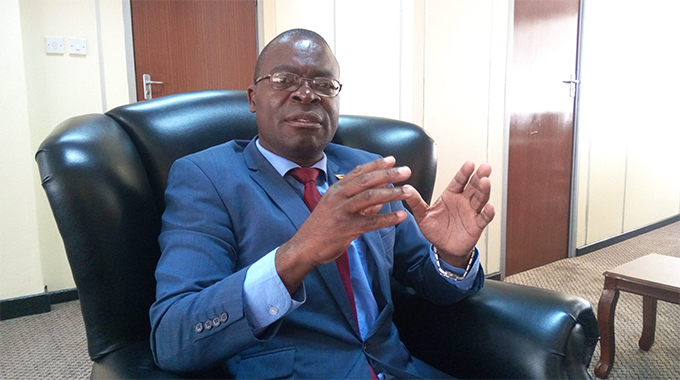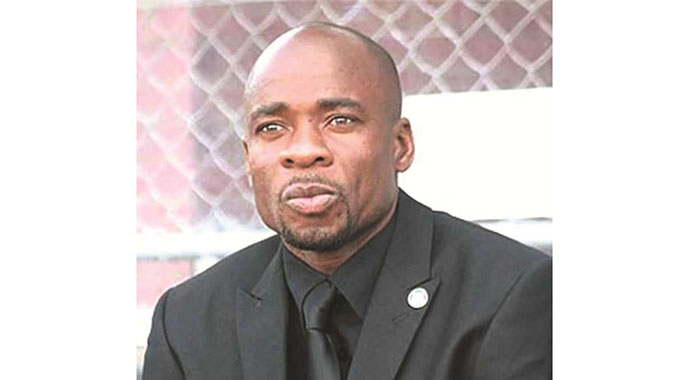The new Fab Five

Sharuko On Saturday
WE called ourselves the ‘Fab Five,’ — Basildon Peta, Amos Nyoni, Douglas Rinomhota, Abel Basuthu and yours truly.
It was 1990.
And, in our small world, we were the Beatles of our journalism school class because we had secured a badge of honour everyone craved for.
Zimbabwe Newspapers, publishers of this grand old newspaper, had introduced a special scholarship scheme for the ‘brightest’ prospects, among the first-year students.
The test was as simple as it was tough – make it into the top five, in the first examination, and you make it into this exclusive group.
Somehow, I squeezed myself into this group and this came with great perks – a full scholarship from Zimpapers, a $200 monthly pay out and easy access into Herald House.
So, driven by the stupidity of our innocence, we started calling ourselves the rock ‘n’ roll stars of our student group.
It didn’t help that fate had ensured that we had to be five, the same number as the Beatles, even though I don’t know who was the John Lennon or who was Paul McCartney.
Abel was the quiet fellow, the rest of us were wild, finding comfort in alcohol and this myth that, like Jose Mourinho later in the new millennium, we were the ‘Special Ones.’
What I didn’t know was that the bosses at Zimpapers had this idea to invest in journalists who would be recruited into specialist fields like business reporting.
During a regular visit to Herald House, I was asked by the bosses which section of the newspaper I would prefer to join when I complete my studies.
‘Sports,” I replied, “I’ve always wanted to be a sports journalist.”
For those bosses, this was a huge disappointment.
In fact, it was quite a shock for some of them to hear they had invested in someone who just wanted to spend a Sunday at Rufaro, covering a game between Dynamos and CAPS United.
Three of the four bosses saw that I had picked up their disappointment and, to try and cheer me up, they tried to smile.
Of course, their smile didn’t deceive me because I had long learnt to understand that some people say it best when they say nothing at all.
Well, with time I got to know that back then, one really didn’t need to go to college to be a sports journalist.
Three decades later, our romance remains strong – the newspaper group and the college student who decided to swim against the tide.
And, for me, it’s been the adventure of my life.
Travelling around the globe, including to all but just 13 African countries, has been a Cinderella tale for a guy from the compounds or, as many prefer to call them, ‘kumakomboni,’ of Chakari.
Covering major sporting events, and interviewing some of the world’s greatest stars, including a one-on-one chat with West Indies legend, Sir Clive Lloyd, in Guyana, is the stuff of dreams.
Nurturing a generation of some of the finest sports writers we have today has been the greatest mission of my life as a journalist.
Of course, the landscape, in which we operated in the ‘90s, is different from the one today’s sports journalists are operating in.
In the ‘90s, we were the only privileged and trusted witnesses to a sports event and what we wrote was the bible and would be swallowed in its raw form.
Now, you have an army of social media wizards, who have transformed themselves into some kind of experts in sports coverage, and they are now going toe-to-toe with the professional journalists.
A PROFESSION UNDER THREAT
We have seen a huge shift, in recent years, to the personality-driven genre of sports journalism we have these days, around the world.
Now, the profile of the journalist telling the story is as important as the very story that he or she is telling.
About 2304 years have passed since the first sports report was filed by a Greek fellow called Homer in 700 BC when he covered a wrestling match in Greece.
Sports journalism existed before newspapers.
And, 2722 years would pass, between the first sports report, and the emergence of the first newspaper in Germany in 1605.
However, the relationship between sports journalism and newspapers has always been tricky and it wasn’t until the 1800s that American journalists began to write exclusively as sports writers.
It was until 1914 that the job of role of a Sports Editor was actually considered to be a proper job and part of the editorial structures of a newspaper.
Now, the relationship is being tested again.
On July 10, the New York Times announced it was disbanding its sports desk and it was learning more on The Athletic, an online subscription pay-as-you-read sports site, which the newspaper acquired last year for US$550 million.
The Los Angeles Times also announced it was cutting its traditional sports page elements like game stories and box scores and turning to magazine-like coverage of sport.
The argument from the NYT management is that few New Yorkers buy the newspaper for its sports coverage.
Pat Borzi, a veteran American sports journalist, also noted that the tabloid Daily News and Post provide better and comprehensive daily coverage and commentary “in a city that lives hard and moves fast.”
The NYT, he said, is read for its “world and national news, politics and the arts and sport was secondary.”
But, that hasn’t prevented a furious backlash from readers, with a considerable number cancelling their subscriptions.
What isn’t in question is that today’s generation of sports writers have a tougher challenge, in terms of justifying their presence and exerting their influence, compared to our time during the pre-social media era.
I feel for them, the hard work they have to put in, the innovation needed and the challenges they are up against in a world where digitalisation is as much an ally and a foe for them.
But, it is what it is, they have to adapt or they will lose relevance.
They have to be innovative or, just like those guys who were on the sports desk of the NYT, including a number who won the Pulitzer Prize, the train will leave them behind.
The brutal reality of life in these trenches is that if it can happen at the NYT then it can happen to any newspaper in the world.
Don’t be fooled by the distance and that it’s something happening far away in the United States.
Borzi, who has contributed articles for the NYT, highlighted that point in his powerful article in the MinnPost of Minneapolis on Thursday.
“New York and Los Angeles Times’ decision to cut back on sports is an alarming trend in news coverage,” he wrote.
“Why should you care if you don’t live in L.A. or New York, don’t like sports and don’t subscribe to either paper?
“Because this kind of short-sightedness could be coming to a paper near you.”
I read all this stuff because I really care for sports journalism, it’s what made me who I am and it’s something that will always be a big part of me.
Hopefully, today’s generation of our sports journalists also take time to read all these things to get an impression of where their industry stands right now.
PROPER JOURNALISTS, PROPER JOURNALISM
But, what isn’t questionable is that there will always be an appetite, from readers, for excellent sports journalism.
This is the kind of sports journalism that we saw from Hope Chizuzu, Petros Kausiyo, Eddie Chikamhi, Daniel Nhakaniso and Kevin Mapasure in the ZIFA saga, which bedevilled our football, in the past 18 months.
Of course, they are not the only ones who fought the good fight, on a terrain where they had to navigate a lot of landmines, in what was a battle between good and bad, the darkness and light and life and death of our football.
They were the frontline crew, courageous men who refused to be bullied by a system which was hostile to their pursuit for an island of order, in a raging ocean full of chaos.
In their spirited search for an oasis of hope, on a desert dominated by hopelessness, and in their quest for the game to once again find love after years of hate.
They put the interests of the game ahead of everything, which was not easy, especially in a kingdom which had been captured by some warlords who now ruled with an iron fist.
Even when time appeared to compromise the cleansing process, turning a good chunk of people, who had initially supported the initiative, into some of its most vicious critics, these journalists stood firm.
Chizuzu led the way, in more ways than one, by repeatedly finding the content, which was needed, to prove that this process was moving in the right direction.
While I don’t agree with his characterisation of Martin Kweza and Sweeney Mushonga as part of the ‘Guptas, I can only admire the way he went about sourcing and providing content that was relevant and informative.
In my little world, Kweza and Sweeney are guys who played a big part in the revolution and to try and cast them as outcasts, as a group of people who shouldn’t have a future in the administration of the game, doesn’t appeal to me.
Even on the eve of the resolution of the saga, there were many who doubted, including flooding the market with a massive dosage of fake news but, when you have proper journalists doing a proper job, proper journalism will always prevail.
It’s refreshing to note that, in the past two weeks, since the resolution of our football saga, many fans and readers are now leaning towards the content of those sports journalists who told the story the way it was.
For me, that’s important because it tells us that there is still a future for sports journalism in this country, even amidst all the challenges which the newspaper industry, around the world, is facing.
If the content is right, based on the principles of what has made journalism such a very important profession, then it will always have a constituency ready to feast on it and pay for it.
At some point, in 2021, the bosses of this newspaper organisation decided that I had done my part in terms of my previous life as a specialist sports journalist.
They decided it was time for me to be refreshed, with new challenges, and they moved me to the crazy tabloid world of the likes of Madam Boss, Mai TT, Holy Ten, you name them.
A world where babies are born as celebrities and wives are given cars as presents for giving birth to baby boys.
Sports journalism is my past, even though it’s my foundation, and there are a lot of excellent journalists, including Mako Gold, who represent its future and are making their presence to be really felt.
Without proper sports journalism, highlighting how our football had lost its soul and, in a way, even gone to the dogs, it’s very unlikely we could have come to where we are today. In a world where sports journalism faces a lot of threats, including entire newsrooms being disbanded, it’s refreshing that we still have some proper journalists fighting for its tomorrow.
My days of the ‘Fab Five’ are long gone, they came and went with the ‘90s.
But, it’s fine because we seem to have a new ‘Fab Five’ in town – Chizuzu, Kausiyo, Chikamhi, Nhakaniso, Mapasure.
To God Be The Glory!
Peace to the GEPA Chief, the Big Fish, George Norton, Daily Service, Sitting Bull, Crazy Horse and all the Chakariboys still in the struggle.
Come on United!!!!!!!!!!!!!!!!!!!!!!!!!
Brunoooooooooooooooooooooooo!
Text Feedback 0772545199
WhatsApp 0772545199
Email – [email protected]
You can also interact with me on Twitter (@Chakariboy), Facebook, Instagram (sharukor) and Skype (sharuko58)








Comments